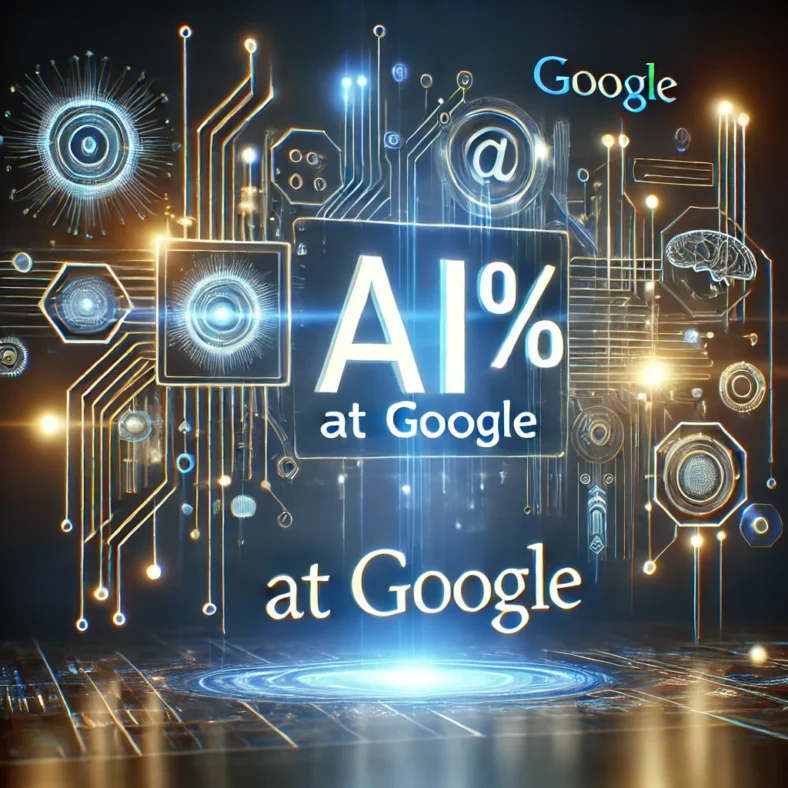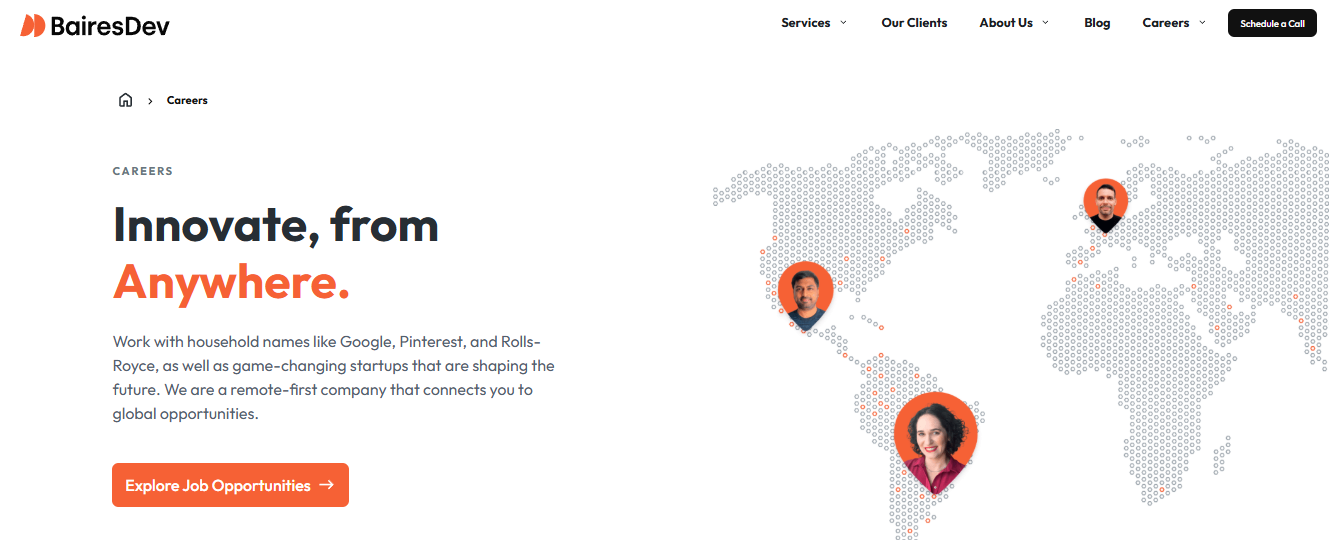The Future of Google Software Developers
Artificial Intelligence (AI) has already begun to transform many industries, but its integration into software development is creating a paradigm shift that could redefine how developers work. Google, a company renowned for its innovation, is at the forefront of this revolution. According to a recent article by Forbes, AI is now playing a crucial role in the development process, helping Google software developers to automate, accelerate, and optimize coding tasks.
AI’s growing presence in the field of software development is not just about efficiency; it’s about empowering developers to focus on more complex, creative tasks while delegating routine and repetitive coding tasks to AI tools. These tools are becoming indispensable for developers at all levels, especially for those working on large-scale systems and applications like those created at Google.
The Role of AI in Google Software Development
Google software developers have always been known for their ability to create cutting-edge technology. However, with the advent of AI, the way developers approach their coding tasks is undergoing a significant transformation.
In the past, developers spent a considerable amount of time performing repetitive tasks such as writing boilerplate code, conducting manual code reviews, and troubleshooting errors. AI-powered tools now handle these tasks, allowing developers to focus on higher-value activities like designing new features, improving user experience, and enhancing performance. These tools analyze vast amounts of data and use machine learning models to generate code that is both functional and optimized, making the work of Google software developers faster and more efficient.
Boosting Productivity: 25% of Google’s Code is Now AI-Generated
One of the most striking revelations from Forbes’ report is that more than 25% of the new code at Google is now being generated by artificial intelligence. This is a game-changing statistic, especially considering the scale and complexity of Google’s software systems. The integration of AI into the coding process has allowed Google software developers to increase productivity dramatically.
AI is now used to write code, suggest improvements, and even handle some of the decision-making involved in programming. This shift has accelerated the pace of development at Google, enabling the company to deliver updates, new features, and innovations at a much faster rate. However, while AI can write code, it is still essential for developers to maintain control. The AI-generated code undergoes rigorous review by experienced engineers to ensure its quality, security, and compatibility with existing systems.
This symbiotic relationship between AI and human developers is a key factor in Google’s success. While AI can automate certain aspects of coding, Google software developers are still responsible for the final product. Their expertise ensures that the AI-generated code aligns with the company’s standards, goals, and vision for the future.
The Future of Google Software Developers: Collaboration with AI
The collaboration between Google software developers and AI tools is only beginning to scratch the surface of what’s possible. As AI technologies continue to evolve, it’s likely that Google will rely even more heavily on AI to handle increasingly complex aspects of coding. The current usage of AI-generated code is just the beginning; future versions of these AI tools may be able to generate entire software systems, including architectures and designs, with minimal input from developers.
Despite this, AI will never replace human software developers. Instead, the role of developers is shifting toward higher-level responsibilities, such as defining the direction of projects, ensuring the alignment of AI-generated code with business goals, and overseeing the overall design and architecture of software systems. In the future, Google software developers will act as the architects of AI systems, guiding the AI and ensuring it serves the company’s long-term objectives.
Conclusion: Embracing AI for the Future of Software Development
Google’s adoption of AI for software development marks the beginning of a new era for Google software developers. As AI continues to evolve, it will play an increasingly prominent role in writing and optimizing code. However, the true potential of AI lies in its ability to complement and enhance the work of human developers. Rather than replacing them, AI is empowering developers to achieve more, faster, and with greater precision.
The future of Google software developers looks bright as they continue to leverage AI to tackle more complex challenges and push the boundaries of innovation. As AI tools become more advanced, developers will be able to focus on what truly matters—solving real-world problems and creating technologies that make a difference. The synergy between AI and human expertise is set to redefine the software development landscape, with Google leading the charge in this exciting new era.
The Future of Tech Jobs: What to Expect from AI Integration in the Workforce
As artificial intelligence (AI) continues to advance, it is rapidly reshaping the landscape of the workforce. Nowhere is this change more noticeable than in the tech industry. Developers, engineers, and other tech professionals are experiencing firsthand how AI tools are transforming their roles and responsibilities. The rise of AI promises exciting new opportunities, but it also introduces challenges that the workforce must adapt to in order to remain competitive. As AI integration deepens, it’s important to explore what the future holds for tech jobs and how professionals can prepare for the evolving landscape.
The Impact of AI on Developers’ Roles
For developers, AI has already begun to play a significant role in augmenting their work. Tools like code generators, automated debugging systems, and machine learning models are helping developers to work more efficiently and solve problems faster. AI is shifting the focus from performing repetitive tasks—such as writing boilerplate code or identifying errors—to more strategic and creative activities, such as designing user experiences, optimizing algorithms, and overseeing the overall architecture of software systems.
For example, companies like Google have already integrated AI into their development workflows, with AI generating more than 25% of new code within the organization. This shift enables developers to focus on higher-level tasks while the AI handles much of the repetitive work. In the future, AI could be even more integrated, potentially automating more complex coding tasks and allowing developers to spend more time on innovation.
While some fear that AI will replace developers, the reality is that AI is more likely to work alongside them. AI will serve as an assistant, boosting productivity and enabling developers to do more in less time. The need for human expertise in problem-solving, decision-making, and creative innovation remains crucial, even as AI continues to evolve.
Evolving Tech Professions: New Opportunities and Specializations
As AI takes over routine coding tasks, new opportunities are emerging for tech professionals. The shift toward AI-assisted development will not only change the way developers work but also lead to the creation of new roles and specializations in the tech industry. For instance, AI specialists, machine learning engineers, and data scientists are in high demand as companies look to integrate AI into their products and services.
Additionally, roles such as AI trainers, responsible for teaching AI systems how to recognize patterns and make decisions, are becoming increasingly important. These positions require both technical expertise and an understanding of how AI models learn and make predictions, opening new career paths for professionals with the right skill set.
The integration of AI also means that there will be a greater emphasis on cross-disciplinary skills. Developers, for example, will need to be proficient in understanding how AI works, as well as how to collaborate effectively with AI systems. As AI tools evolve, developers will need to become more adept at working alongside them, blending their coding skills with the capabilities of AI to achieve the best outcomes.
The Skills of Tomorrow: Preparing for the AI-Driven Future
To thrive in the AI-driven future, tech professionals must adapt by upskilling and embracing new learning opportunities. Knowledge of AI and machine learning will be valuable across many areas of tech. Developers should aim to gain familiarity with AI tools, frameworks, and algorithms, as well as develop an understanding of data structures and statistics, which are fundamental to AI development.
Beyond technical skills, soft skills such as creativity, problem-solving, and communication will become even more important. While AI can handle routine tasks, it’s the human element—understanding the bigger picture, making critical decisions, and fostering innovation—that will continue to drive the tech industry forward.
Moreover, as AI begins to automate more aspects of the software development lifecycle, professionals in the tech sector will need to focus on ethical considerations, such as ensuring AI systems are used responsibly and transparently. The role of tech professionals will increasingly involve navigating these ethical challenges and ensuring that AI is applied in ways that benefit society as a whole.
With AI’s increasing role in tech, one question looms large: Will AI lead to job displacement in the industry? While some entry-level roles may become automated, the truth is that AI is more likely to complement human workers rather than replace them entirely. In fact, many experts believe that AI will create more jobs than it displaces by opening up new areas of work and specialization.
However, the shift to AI-driven systems will require a cultural and operational adjustment. Companies and employees will need to be proactive in reskilling to stay ahead of technological changes. For instance, a developer who might have focused solely on coding could pivot to become an AI specialist or even transition into roles that involve working with AI to improve business outcomes.
AI may also lead to changes in job roles and organizational structures. Developers may no longer be the sole creators of code but will collaborate more closely with AI tools and other specialists, such as AI trainers and ethical experts. As the workforce evolves, a multidisciplinary approach will become increasingly important for success.
Conclusion: Embracing the Future of AI in the Workforce
AI is undoubtedly transforming the tech industry, offering developers and other tech professionals the opportunity to enhance their work, improve productivity, and take on more creative and strategic challenges. The future of tech jobs will require a mix of technical proficiency, adaptability, and ethical awareness as AI continues to evolve and shape the workforce.
While some may be concerned about job displacement, the reality is that AI is likely to create new roles, new specializations, and new ways of working. By upskilling and embracing the AI revolution, tech professionals can ensure they are prepared for the opportunities and challenges that lie ahead.
The future of tech jobs is undeniably intertwined with AI, and those who adapt will find themselves at the forefront of a more innovative, productive, and exciting industry.
SOURCE-KW[KM-10|100]






